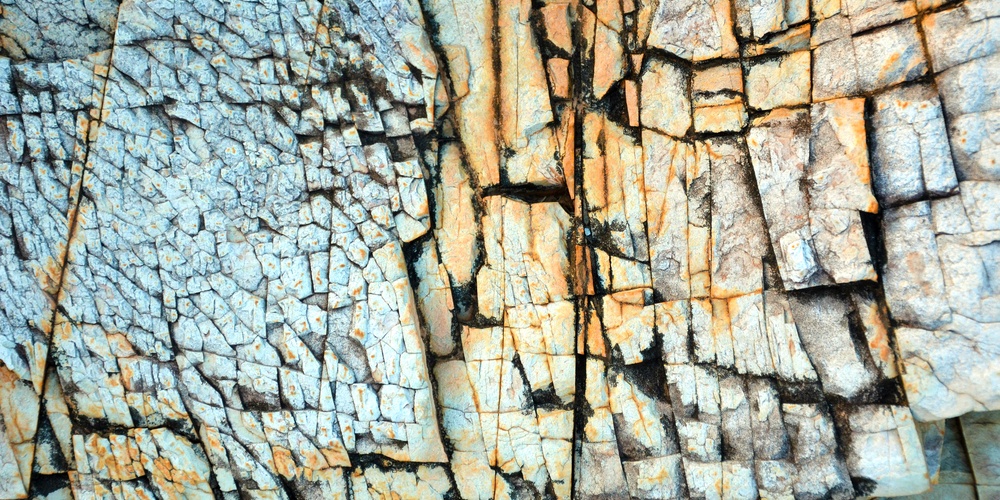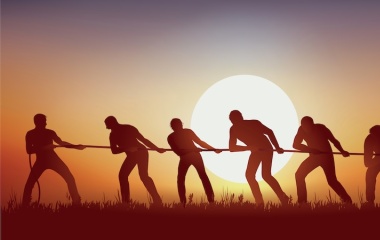
One of the hallmarks of a strong society is its ability to smoothly effect change. New leaders and policies, crises and confrontations are all dealt with in an orderly fashion without the threat of violence. New ideas are incorporated within the existing structure. It is a process of evolution, as opposed to revolution.
Many people find change—any change—disconcerting and prefer the status quo, no matter the repercussions. The generation that was redeemed from Egypt and received the Torah could not properly handle the manifold changes in their life. The transition from a band of slaves who had all decisions made on their behalf, to a nation guided by a Torah in which man must choose how to act, was too difficult for them. For many, being a slave, being free from thinking, was to be preferred over making the difficult choices that life affords. While the Torah enumerates the Jewish people as they prepare to enter the land, the people themselves "started saying to one another, 'Let's appoint a leader and go back to Egypt" (Bamidbar 14:4). Though the change was clearly for the better, the Jewish people wanted no part of it.
Life is not static; change is a given and must not immobilize us. It is our value system that must not change. Provided that system is solid, we can implement change to our spiritual advantage. Perhaps this is why the Torah was given in a desert. A desert is a place where in order to survive, one must be able to adapt to a hostile environment.
The world has undergone enormous changes in the past two hundred years, and these changes are happening so fast that often technology, much of which did not even exist as little as five years ago, is obsolete soon after you purchase it.
Many felt that our Torah could no longer meet the challenges of a changed world, and either ignored or tampered with core elements of our faith. They failed to understand—and perhaps Torah authorities were unable to demonstrate—that the values inherent in our Torah can and must be applied to our ever-changing world.
This is no better illustrated than in the story regarding Moshe's receiving of the Torah. The Talmud (Menachot 29b) relates that Moshe was "transported" to the beit midrash of Rabbi Akiva, where he sat politely at the back of the room, listening in on the discussion. Unfortunately, he was unable to participate, as he could not follow the goings on. He was understandably quite upset. What had happened to the eternal Torah? Did Rabbi Akiva distort the Torah of Moshe Rabbeinu? Moshe, though unable to understand, was pacified when Rabbi Akiva proclaimed the source for the matter under discussion was halacha leMoshe miSinai, a law given by G-d to Moshe at Sinai. The Torah of Moshe had not changed. However, the conditions in which it existed had become vastly different.
Torah can only be applied by one who understands the world in which it must operate. This is why traditionally it was the communal Rabbi, who lived with the common people on a daily basis, who was the halachic decisor, and not the Rosh Yeshiva who could afford the luxury of living in an idealized but unrealistic world.
The challenge facing us today is to apply the eternal message of Torah to an ever-changing world in a manner that will be relevant to modern man. Instead of fearing change, we must harness it for our advantage. Not only is this a pragmatic approach, it seems to be a religious obligation. We must use everything that has been created in the service of G-d. It is told that the Chafetz Chaim saw the inventions of his day through the prism of religious meaning. The telephone teaches us that what we say here is heard over there, the train teaches us that if you come one moment late, you must wait an extra day. I can only imagine what he would have said about the computer.
Today, we celebrate the reunification of Jerusalem. After 2,000 years of exile, the Jewish people have merited to have sovereignty over our most holy city. Jerusalem lies at the heart of the Jewish soul. Unfortunately, there is much fighting to define what lies at the heart of Jerusalem. Should it be a modern capital or kept as the home of our ancient heritage? The answer must be, both.
Modernity and tradition are not in conflict. Challenges, yes; but conflict, no. It is our job to help resolve any apparent conflict so that change can be properly incorporated into Torah. The Mishna (Pirkei Avot 2:13) teaches that the most important quality one can have is a good heart. The heart receives blood and pumps out blood. Without it, we are dead. So, too, spiritually, we receive influences from the outside world. Our job is to take them in and pump them back out with the influence of Torah. If we do, then the Torah will go on breathing heartily for eternity.



